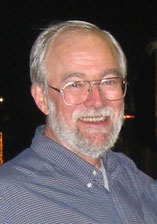Richard Shekelle
Year: January 3rd, 2004
Location: Anna Maria, Florida
Interviewed by: Blackburn, Henry
Abstract
Dr. Shekelle discusses theoretical and practical issues concerning study design, with reference to his long experience. He comments on the current direction of studies in CVD epidemiology, sharing a conviction that randomized controlled trials are not always possible or desired in the field; as well as an impression that the field has undergone some bureaucratization. Shekelle’s role in analysis and follow-up in the Chicago Western Electric Heart Study provides a launching pad for a discussion of the importance of good field workers as well as of Shekelle’s enduring interest in the importance of psychological variables in the development of CHD. The Type A behavior hypothesis in CHD, and the politics of Shekelle’s role in disproving it, are also recounted. He also lauds Oglesby Paul and Jerry Stamler for their contributions to the field and to his own education as an epidemiologist. (Suzanne Fisher)
Quotes
When we started there were a number of investigators doing small intervention studies….But it was realized that not one of them had any sort of power in itself. So there was this cry that “we need the definitive study.” And we ended up with MRFIT and one of the things that I came away with from that experience was the idea of developing this lumbering mastodon, you know, that once launched could not change course. And it’s one of those imponderable questions, what would have happened if instead of trying to roll all into one ball the Institute had continued to support investigator-initiated single projects
A that time [the mid 1960s] I was extraordinarily naïve. I knew how to analyze data, but I knew nothing about coronary heart disease or much of anything else. And I had been raised in this school of empiricists that you have all these facts and so on and so forth and you sort of sift through them and stack them up and ultimately you have something other than the pile of bricks. And it wasn’t until I started working with Jerry [Stamler] that I learned the importance of the question…. And that the question determines the analysis.
I bless one of my field workers who had the ability even over the telephone to tease information out of anybody. For example, we were missing this one man and she talked to post office people and to ministers of churches and finally found that he had moved….Having field workers who will go to all kinds of lengths to complete an assignment is critical. Like another one I know where a husband had been shielding us from a woman who we needed as part of our study….we had not been able to get in touch with her…. So anyway, this field worker who is a very young woman, very slender, big eyes with eyelashes that she could use. One Sunday morning went to their home and knocked on their door and identified herself. And she started, “Dr. Shekelle is going to be so mad at me if I don’t get this interview.” And she got her interview. And people like this are just invaluable in this kind of research.
This is a thing that a lot of clinicians simply don’t understand that, yes, we recognize that we are making errors, it’s just our errors have got to be random.
Full Transcript Access
Full transcripts of interviews may be made available to those engaged with original materials for scholarly studies by contacting us.
